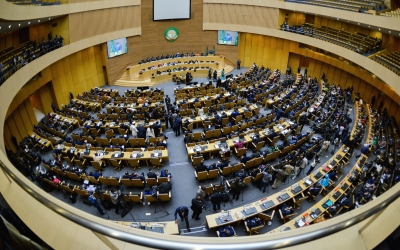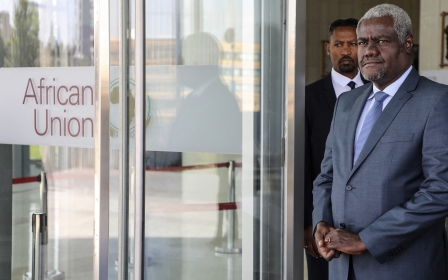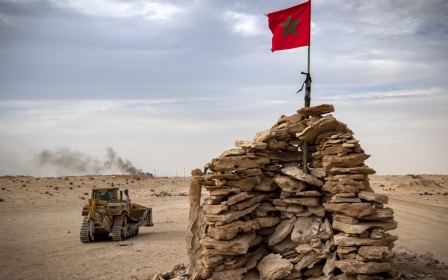African Union: Drop Israel's observer status, rights groups tell AU leaders
The African Union should withdraw Israel’s observer status because the country’s human rights violation and crimes against humanity stand in “fundamental opposition” to the union’s constitution, three advocacy organisations have argued to AU leaders.
For nearly 20 years, Israel tried without success to join the pan-African body which debates continent-wide issues, particularly as it has sought to build bilateral relations with African countries.
The AU rejected two earlier Israeli bids for the observer role, and in February, called for an end to Israeli occupation and for Palestinian independence.
But in July, AU Commission head Moussa Faki Mahamat granted Israel observer status reportedly without consulting all member states. Since then, more than half of the 55 states - including South Africa, Algeria and Egypt - have voiced opposition to the decision.
Now the UK-based International Centre of Justice for Palestinians, Democracy for Arab World Now (Dawn) in the US and The Legal Resource Center in South Africa are calling in a legal submission sent to the AU’s executive council for the body to suspend Israel’s observer status.
They say Israel’s actions, particularly its crime of apartheid and persecution against Palestinians, should disqualify the country from participation in the union whose constitution calls for political independence, human dignity and economic emancipation.
Sarah Leah Whitson, executive director of Dawn, said the AU’s granting of observer status to Israel was “unconscionable”, particularly on the heels of its May offensive in Gaza.
“The African Union should be in the vanguard of the struggle against the brutal domination of one group over another but instead has lent legitimacy to Israel’s apartheid government,” Whitson said in a statement.
In the ICJP's 24-page legal submission, the group documented how it believes that Israel “in no way meets” the AU requirements for observer status, and focuses on its blockade on Gaza, illegal occupation and forced transfers, indiscriminate and disproportionate attacks, and extrajudicial killings.
Sherylle Dass, regional director of The Legal Resources Centre, said it was an insult to both the people of Palestine and to black South Africans for the AU to grant "apartheid Israeli observer status".
“We cannot condone or be indifferent to any state that colonises and illegally occupies another and oppresses and subjugates its’ people,” she said.
In August, Faki responded to criticism pointing out that the decision fell under his remit and pointed to the more than 40 AU member states which have bilateral relations with Israel.
He also said that accreditation came alongside the union's "unflinching commitment" to the "fundamental rights of the Palestinian people, including their right to establish an independent national state".
The executive council is expected to discuss the matter at its next session scheduled for 13-14 October in Chad.
Middle East Eye delivers independent and unrivalled coverage and analysis of the Middle East, North Africa and beyond. To learn more about republishing this content and the associated fees, please fill out this form. More about MEE can be found here.





